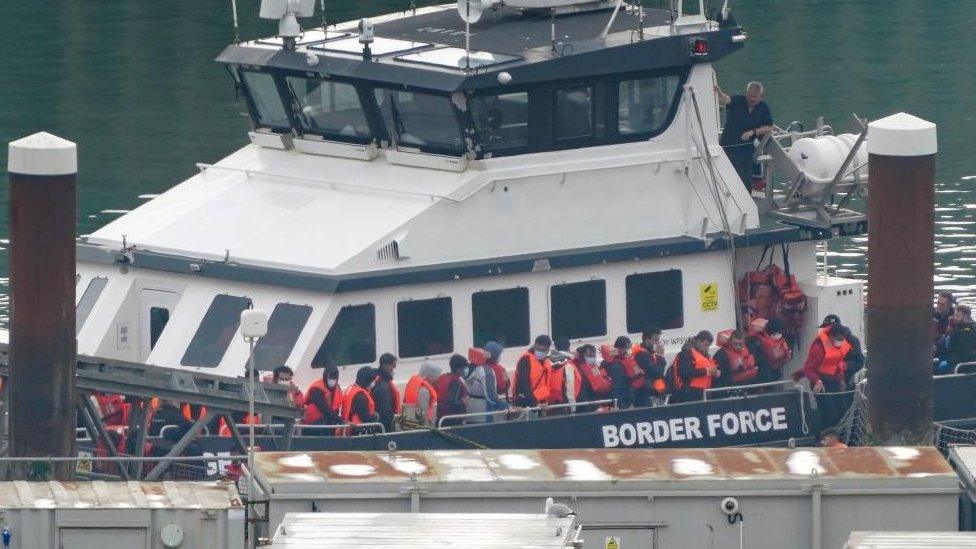European court president warns over Rwanda rulings
- Published
- comments

The head of the European Court of Human Rights says countries have a "clear legal obligation" to follow its injunctions, despite UK ministers considering ignoring them.
The government's Rwanda bill aims to stop legal challenges against plans to send asylum seekers to the country.
In June 2022, the ECHR stopped the first Rwanda flight, saying British judges had not ruled on the plan.
It comes as the House of Lords prepares to debate the Rwanda bill next week.
Downing Street said the government was confident its Rwanda legislation was compliant with the UK's international obligations.
The legislation, passed by MPs last week, could face substantial opposition in the Lords - and ministers have formally admitted in a statement that it may breach the European Convention on Human Rights.
A key element of the government's plan would allow ministers to ignore the Strasbourg-based court's so-called Rule 39 orders - more commonly known as a court injunction.
In June 2022, an ECHR judge used that power to temporarily stop the first Rwanda flight, until the migrants on board had had a chance to put their case to British judges.
That delay in the flight allowed the migrants to take their case to the UK Supreme Court, which ruled last year that the entire plan was unlawful.
Speaking to journalists at the ECHR's annual press conference, the court's president, Siofra O'Leary, said: "There is a clear legal obligation under the [European Convention on Human Rights] for states to comply with Rule 39 measures.
"The court issues interim measures in exceptional circumstances where there is a real and imminent risk of irreparable harm."
While she did not comment directly on the political row over the Rwanda plan, President O'Leary said: "Rule 39 measures are almost always sought in situations of urgency, if not extreme urgency.
"And the nature of the urgency, or the degree of urgency, is something which governments control. The court doesn't control the degree of urgency."
She said that in 2023 the court had received 61 requests to make an emergency intervention against the UK. Only one of those had been granted as genuinely necessary.
Separately, in 2021 the UK had urged Moscow to comply with one of the court's Rule 39 orders, demanding the release of jailed opposition leader Alexei Navalny. And last year another order had helped save the lives of two British fighters in Ukraine who had been taken captive by Russian forces.
"[The UK] has always complied with Rule 39 measures going all the way back to the...1950s and stays of execution," she said.
"In only one case, to my knowledge...did the UK fail to comply...but the factual circumstances of that case, were very particular."
Prime Minister Rishi Sunak said: "I've been very clear, I won't let a foreign court stop us from getting flights up and running."
He said his Rwanda bill included a "specific power", allowing ministers to decide whether to ignore the court's rulings.
"I would not have put that power in there if I wasn't prepared to use it," he added.
Downing Street argued that its treaty with Rwanda and the bill addressed the concerns raised by the Supreme Court, and ministers had "created the conditions" to avoid legal challenges.
"There should be no need for Strasburg to intervene to block flights in the way they did in 2022," the prime minister's official spokesman added.
While the judge said she could and would not comment on the UK government's plans for new legislation over Rwanda, her intervention will embolden critics who are piling pressure on the House of Lords to stop the plan.
Peers have already defeated the government in a symbolic vote over approving the UK's new treaty with Rwanda - saying that it should not come into force until the African nation has passed new laws to make its asylum system fairer.
